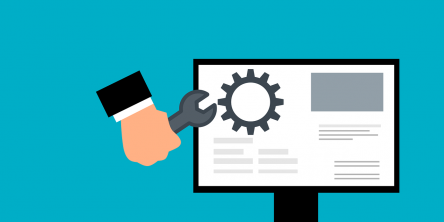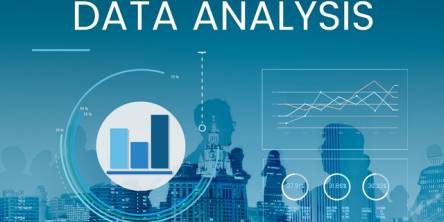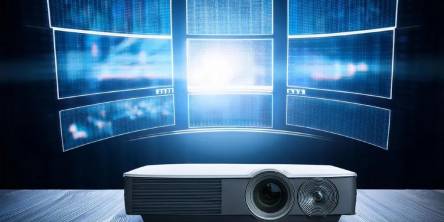Smart Home Data Security: Essential Advice for Landlords & Tenants

Smart homes are unique places. Why?
Because they are unique to the individual, couple or family who inhabit them.
In our brave new world of “The Internet of Things”, the smart home provides a plethora of options that can be tailored to the lifestyle of those who occupy them - and that means data. Data about the way you live, your preferences for a whole range of everyday choices, such as who has access, when your lights turn on and off, your internet selections, when the heating or air-conditioning is activated and much more. All this data may be stored in your home, on a server somewhere or in the “cloud.” Unique security, comfort and those all-important lower energy bills that arrive through the mailbox are the benefits provided by your smart home. However, that uniqueness means data - and lots of it. And, like all personal data, it must be protected.
Whether you are a landlord, a homeowner, or a tenant, if you are benefitting from the recent explosion in smart home technology (more options, better quality, and, yes, more affordable), you need to be aware of how important it is to ensure the data generated about the smart home itself is secure. If you are a landlord of a property, your tenants will expect their information to be kept private. Networking your property or residence is clearly the way forward for many owners and users alike, but if you don’t respond to the essential advice given further on in this article, your dream home could be offering up a lot of sensitive information about you.
Do not fear. Smart home data security is not only possible, it’s achievable. Read on.
7 Essential Tips for a Data-Secure Smart Home
1. A Multi -Functional Security Plan
As many of you know, a security system is only as secure as its weakest kink. Therefore, security for individual smart home devices is simply not enough. Remember, your smart home is a network, and that network needs its own security which encompasses all of the component devices within it. You should not only have a strategy for storing data, but also a strategy for securing and protecting all of your home’s private data.
2. Sign Privacy Contracts
The data contained within your smart home infrastructure undoubtedly holds information about you. Would you happily leave your email password lying around? No, didn’t think so. For example, if you have a security system that utilizes a camera, there will definitely be images of you and your loved ones stored. Personal, sensitive data like this has to be protected. So, you need to sign a contract or agreement with your service provider that will protect such private information.
3. Professional Installation
This should be at the very core of the security plan you have devised for your smart home. Trusted, professional specialists are a must and integral to the integrity of your home network. Once found, feel free to question them about the security options they offer. A good smart home installation specialist will happily offer all the advice you could wish for and work with you to achieve the level of security you require.
4. You Need Secure Passwords
How many times have you heard news reports or read articles that say that the most common password in existence is P-A-S-S-W-O-R-D? Frightening, isn’t it? Be it your smartphone, your tablet or your PC, we all know the benefits of a strong password - it protects your data. Therefore, never, ever use the preset passwords on any device; change them to a much stronger password straight away. Make them long enough and don’t feel nervous about including special characters (our keyboards are full of them). Additionally, these passwords should be changed as often as possible.
5. You Need to Install All Updates
Technology needs to be up-to-date. It’s basically how it works. No version of anything has hit the shelves at v1.0 and stayed that way. The requirements of your security system will undoubtedly change, so the need to update regularly is essential. You certainly do not need a security breach caused by out-of-date software.
6. You Need to Protect the Integrity of Your Networks
Consider Installing a firewall. That really is a given when it comes to secure network protection. It will ensure that no third parties are able to intercept your signals and data. Go one step further too. Set up a Virtual Private Network (or VPN), thus making sure all connections to your smart home are via a virtual tunnel, so stopping any third parties gaining access to your private data.
7. You Need to Protect the Integrity of Your Wireless Networks
Your wireless (WiFi) networks need the same treatment; in fact, you need to go even further. Our advice? Read up on WPA2 Encryption and how you can utilize it to maximise your data protection. Too much? Ask an expert. Your trusted service provider will be more than willing to oblige.
There. You’ve followed the advice above, whether you’re a landlord, a tenant or a homeowner, and your smart home is now data-secure. So, shall we complicate things a little? What happens if you move out of the property and go on to pastures new? The following section is going to be of important, practical use to you, especially if you become the landlord / tenant / homeowner of your first smart home property.
Smart Home Moving Day
It’s arrived. Finally. Here’s what you need to know.
Keys? Check. Paperwork? Check. Smart home technology passwords? Erm.....
According to the Online Trust Alliance (OTA), the proliferation of smart home tech is ever-growing and will continue to do so. For example, it is estimated 32% of U.S. homes larger than 278 square meters have at least one connected device. So, if you become the owner of or a tenant of a smart home, this helpful guide will be invaluable. Put together by the U.S. National Association of Realtors and by the Alliance themselves, this soon-to-be indispensible guide highlights the individual steps you need to take to maximize the security and privacy of your smart home, whether you are the homeowner, the landlord or the tenant.
Not only does this apply to those entering a smart home - it also applies to those leaving one. You need to ensure that when the keys are handed over, all of the private data you have acquired by your smart home residency is not. Take, as an example, the President and Executive Director of our friends from the OTA, Craig Spiezle. When he and his family moved house, the new occupant asked a question regarding the installed smart thermostat. Only then did Mr. Spiezle understand he still had access to it.
Last Word: Smart Home Data Security
When handled by trusted professionals and specialists in their technical field, making your smart home data-secure and utterly private is achievable. Connected devices are sure to be the next big thing for many, bringing the huge benefits of greater security, greater comfort and greater energy efficiency. Yet, because they are connected, they produce data (personal information, images, etc.) that may be of interest to others. So make your smart home and its data as secure and private as you can.
Similar Articles
The global conveyor system market, valued at $6.4 million in 2024, is likely to reach $11 million by 2034.
Content has permanently changed. We essentially have the digital revolution to thank for it. You see, how content is created and consumed has been fundamentally transformed.
Explore how enterprise software simplifies complex testing with secure, scalable solutions, streamlining exam creation, administration, and data management for institutions.
Using fiber optic technology, HDMI cables can transmit video and audio signals without compromising on quality over extensive distances.
Explore the OSFP transceiver: a high-speed, future-ready solution for data centers. Learn its advantages in bandwidth, thermal performance, and signal integrity.
The financial technology sector, commonly known as fintech, is experiencing profound changes due to the rise of data science. Integrating extensive data methodologies enhances existing services and unravels new opportunities that were previously unimaginabl
The gas detection industry has been subjected to various issues from the beginning. Whether it's a false alarm, limited sensitivity in detecting gases, or detection of hazardous gases in a remote area, the array of problems goes on and on.
Discover how Tinnox LED Video Walls revolutionize events with vibrant visuals, seamless integration, and unmatched adaptability for unforgettable experiences.
Electrical safety goes beyond mere obedience to regulations; it is a vital defense that shields individuals from fatal risks while at work. These invisible dangers are hunted down by arc flash labels which act as sentinels, warning of imminent disaster that can be avoided in both industrial and commercial settings through proper precautions.









